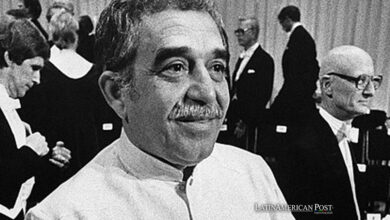Venezuela: the amnesty law does not work
Listen this article
The proposal to attract the Military Forces to the right side of politics does not work because it does not offer anything new

In recent days, the interim president of Venezuela, Juan Guaidó, announced the amnesty law, known by the ruling party as an instrument for great manipulation, the opposition sees in this law a way to make a change in politics, and that helps to end the government of Nicolás Maduro.
Leer en español: Venezuela: la ley de amnistía no sirve
According to this law, endorsed by the National Assembly through article 187, it is affirmed that "It corresponds to the National Assembly: To declare amnesties." Thus, the law, legitimate within the framework of the Venezuelan Constitution, "promises to forget civil, criminal, administrative, disciplinary or tax liability to all civilians and military who contribute to the defense of the Constitution."
In this way, Guaidó stressed that the members of the Armed Forces were in time to be on the right side of the Constitution. Now, this law exempts all those who have never committed crimes against humanity. In this way, Guaidó attempts to attract not only the civilians but also the militants of the ruling party, which has governed Venezuela for several years.
With the implementation of this amnesty, Guaidó has already identified that without support from the Armed Forces, little or nothing can be done to put an end to the government of Nicolás Maduro. Now, the issue is whether this law is tentative for the members of these organizations since it offers nothing different to the situation of the military since they are exempt from responding to any crime committed. On the other hand, those who sound the idea have more to lose than to win.
Just look at the case that happened a week ago, where 27 soldiers belonging to the National Guard decided to steal weapons and barricade themselves in a barracks, expressing the need to take to the streets to protest and end the Maduro regime. However, the rebellion lasted little, because they were silenced and captured, as confirmed by the second in command in Venezuela: Diosdado Cabello.
You may be interested in reading: Venezuela: A smokescreen in Latin America
There is no denying that there is a spark that is suddenly growing within the military forces, but it is useless if it is sporadic and if it occurs in the lower ranks of the organization. Although the uprising at the base of the pyramid of the military hierarchies is a sign of change, there is no doubt that this spark of discontent, reaches the top to make a real difference.
However, another problem that can add to the fact that the military does not reveal itself is the strong presence of the Cuban army, which serve in different ministries and different positions within the Military Forces. Faced with this, Guaidó has to be more forceful, because in the past he merely stated that "the Cuban military must abandon their positions, but that in the same way, he affirmed that in spite of the above, Cubans are still welcome in the country.
So, Guaidó has to devise them to propose an agreement or an amnesty that is more attractive to the military. For these will not leave all the comforts and benefits to support the government of the day, to leave behind the opponent, who guarantees them to be on the right side of the Constitution.
Besides, it is worth questioning whether Venezuelans agree with this law, due to the impunity involved. According to the proposed activity of Guaidó, where civilians were responsible for distributing and publicizing the law, thousands of citizens came to the call and spread the document in the different headquarters of the Military Forces.
An activity with this type of results shows that the opposition supporters are so tired of the authoritarian regime of Maduro, that they would endure forgiveness before continuing with the economic, social and political crisis that the country is currently experiencing. Finally, Guaidó has to present a plan that is sufficiently attractive for the Military Forces, something that really differentiates it from the current situation.
LatinAmerican Post | Laura Viviana Guevara Muñoz
Translated from "Venezuela: la ley de amnistía no sirve"
* The opinion of the writer does not represent the opinion of LatinAmerican Post





